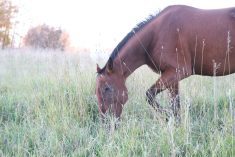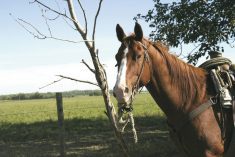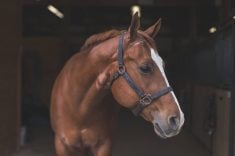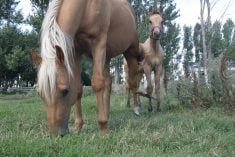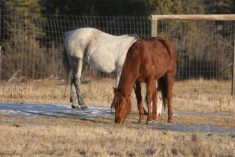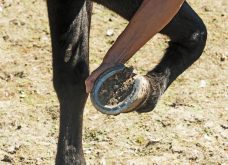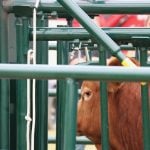Horses have major advantages associated with domestic life but they have also incurred disadvantages that deeply affect their overall health and well-being.
Perhaps the greatest of these disadvantages is the disruption of their social structure due to frequent social isolation. Social support in humans has been found to protect individuals from the mental, physical and emotional stressors of life and it appears that horses benefit equally from the support of a social network. Horses need other horses.
Horses are natural herd animals requiring the security, comfort and familiarity found in the presence of other horses. When allowed the opportunity for a natural organization, horses develop rich and complex social structures.
Read Also
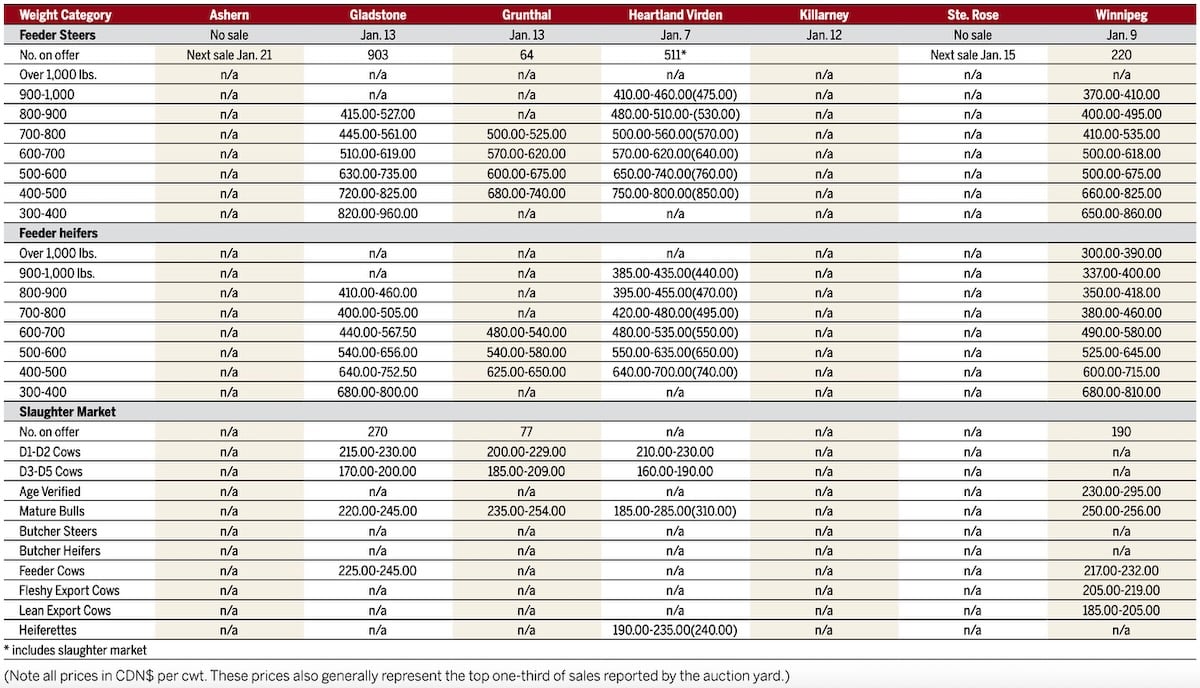
Manitoba cattle prices, Jan. 15
Within a stable social environment, horses learn social skills, manners and emotional regulation. Horses that come from stable social environments within a herd tend to extend their social awareness to the humans with whom they interact.
The basic mental and emotional needs of a horse are often seconded in favour of human needs, competition, convenience and economics. This gives rise to problematic social environments for the horse, especially for youngsters that depend on stable social structures to learn how to properly behave “as a horse”.
MORE ‘Horse Health’ with Carol Shwetz
Behaviours of a horse, good or bad, are strongly influenced by social factors in their upbringing.
Horses are capable of developing bonds of companionship, forming attachments and showing preferences for certain herd mates based upon familiarity and kinship. They are also capable of developing a fondness for and comfort within certain homelands.
The social bonds of the horse are established, strengthened and maintained by the contact of mutual grooming, play, close proximity and through the day-to-day activities of simply being a horse, such as foraging together, moving together and resting together.
Within these social dynamics, horses are exposed to a toolbox of social skills necessary to successfully navigate through life.
Without the workings of a stable herd society, the young horse is denied important learning opportunities to develop proper socialization skills. Many young sport and performance horses are subjected to social isolation within individual housing arrangements and/or experience separation from a stable herd environment through mixing, change of ownership or training agendas. This social gap may later show to be detrimental.
Social isolation has been identified by researchers as one of the strongest stressors for horses, eliciting significant behavioural and physiological changes. Simply observing the intense emotional displays that follow physical separation of horses is testimony to the disruptive forces placed upon the horse’s psyche.
Over the last few decades, modern society has repurposed the horse as a commodity, competitor, companion and/or financial investment. The physical movement of horses between placements, owners, facilities, training and sporting venues has increased tremendously.
As a result, more horses have limited opportunities to interact within consistent herd environments. Social isolation is increasing as a consequence of training schedules, sporting agendas, travel demands and biosecurity constraints.
Research has provided a convincing link between social isolation and the development of stereotypic behaviours such as cribbing, weaving, pacing and stall walking, as well as an increased incidence of digestive and musculoskeletal ailments.
Many horses subjected to isolation for prolonged periods become despondent and withdrawn. Isolation denies the horse the opportunity to express natural social behaviour and separates the animal from the comforts, safety and benefits of the horse group. These have severe consequences for the horse’s psychological and physiological well-being and negatively impact learning.
As the horse industry has moved further away from the roots of animal welfare, there is evidence that industry professionals and owners often misinterpret, dismiss or have become desensitized to many indicators and expressions of equine distress associated with isolated housing.
Injury avoidance is often used as a major argument by horse owners to defend the isolating conditions of their horses but recent research has shown the contrary. Individually housed horses actually incur more lameness and health problems than do group-housed horses.
The horse’s social environment is such a key factor that it alone can shape normal and abnormal behaviour. The peaceful gains found within the social structure of a stable, consistent herd is highly sought by the horses and, if absent, results in a lack of ease in the horse, mentally, physically and emotionally. Great compromise comes to both the horse and the human in health and safety when such is not provided.






